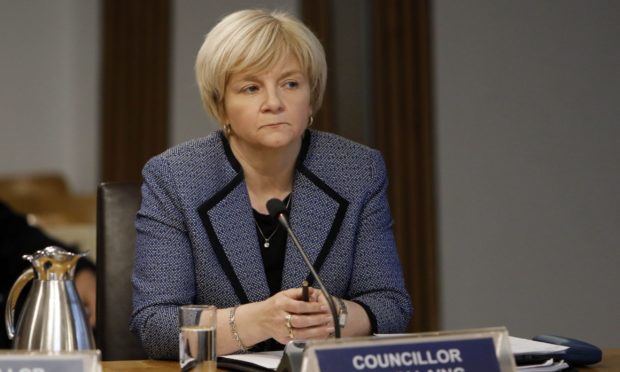More than 5,000 people called up authorities in Aberdeen in crisis last year – unable to feed themselves or their families.
More than nine in 10 of those contacting the city council’s Covid-19 crisis phoneline for supplies said they simply could not afford to buy food.
And Aberdeen councillors are bracing for figures to deteriorate further, as many “quite startling” poverty statistics they were confronted with last week are yet to take the pandemic into account.
The latest figures reflect economic struggles in a city confronted not just by the global health crisis but by the downturn in its main industry, oil and gas.
Numbers of Universal Credit claimants in Aberdeen more than doubled between the arrival of coronavirus in the UK in March and November, from 7,966 to 17,829.
Tillydrone was the worst-hit, with 921 people claiming the benefit.
And statistics from October show poverty is not only affecting those out of work, as more than two in five people on Universal Credit still had a job.
By November, 9,495 were claiming benefits for being out of work.
Council officers said the pandemic had pushed many people into poverty partly due to reduced income as result of reduced hours, lower pay from the furlough scheme and losing their jobs.
Another seven areas in Aberdeen slipped into the 20% most deprived in Scotland, as ranked by the national index of multiple deprivation, taking the city’s total to 29.
But the council’s data chief Martin Murchie warned: “It’s too early to see trends since we have been in the pandemic and lockdown.
“There is obviously a complexity in what determines a life expectancy and healthy life expectancy but generally I think it would be accepted the primary issue is poverty.
“The data we have will be lagging, it won’t be available around the lockdown for a while yet.
“The council’s local outcome improvement plan (LOIP) is positioned as a response to mitigation of poverty in all its forms across the city.
“A lot of those actions have been stepped up as well through the socio-economic rescue plan in terms of an immediate response to some of those issues, including community larders, support for employment and benefits.”
Community leaders will look to refresh the LOIP this year, to take account of changes in the city.
The huge briefing highlighted decline too in the time a baby born in Aberdeen could be expected to live healthily.
Between 2017-19, males were expected to live 77.1 years and remain healthy for 60.6 years.
Females were expected to live longer, but suffer ill health longer too – living 81.4 years but healthily for 62.5 years.
The metric, strongly associated with deprivation, has been in decrease in Aberdeen since 2013 but remains better than across Scotland.
Councillor Sarah Duncan, chairwoman of the Integration Joint Board which oversees the city’s health and social care services, said some of the statistics were “quite startling”.
City council co-leader Jenny Laing said it showed the need to “redouble” efforts to tackle poverty.
The Aberdeen Labour leader added: “The impact of Covid is starting to filter through, we can see that already.
“If you highlight some of the challenges particularly around to threats to local employment; we were already seeing a downturn in oil and gas and yet more jobs have been impacted as a result of Covid.
“That makes it even more important that we push ahead with our diversification plans: those in place through the city region deal, around life sciences, food and drink and agriculture.
“We also have our net zero vison brought forward the middle of last year along with our strategic infrastructure plan where we are pushing ahead with the energy transition.
“The figures are highlighting how important that work is going to be.
“We also see the financial pressures on individuals and families and it’s impacting on areas right across the city, maybe not on the areas we have been most familiar with; we are seeing that impact right across the economy and residents.”
